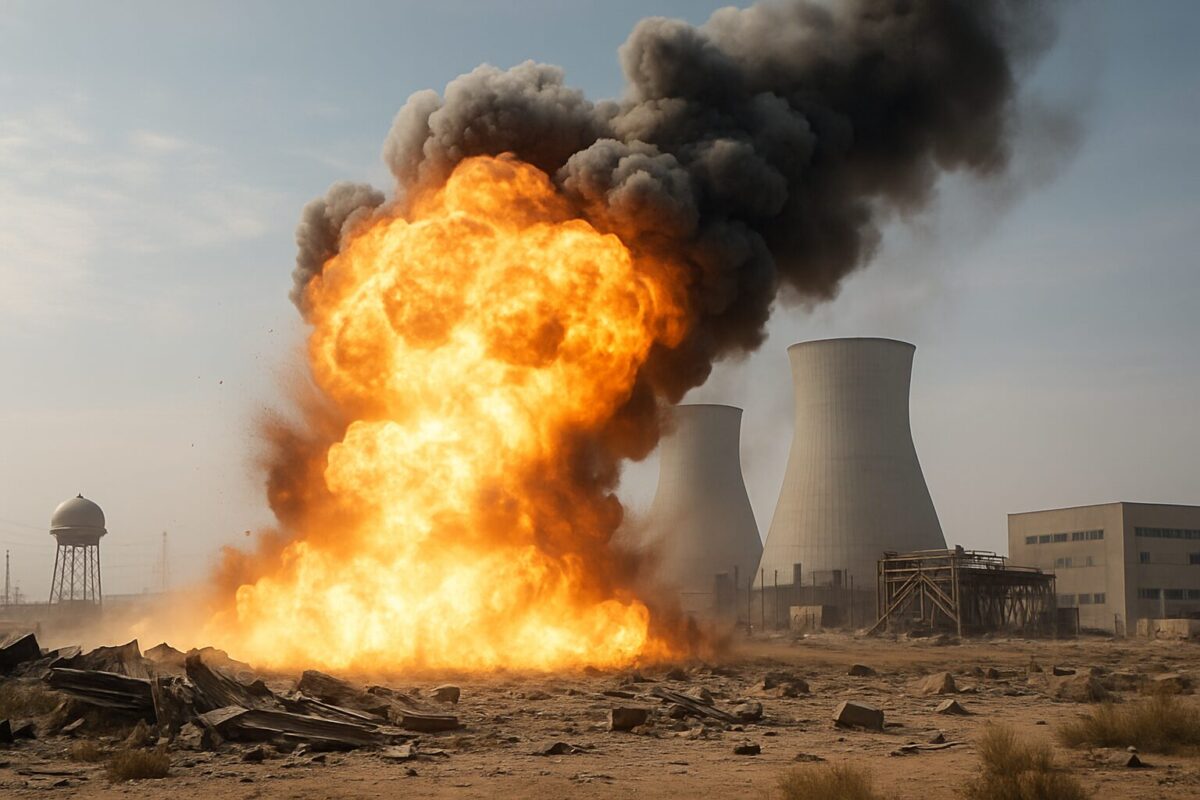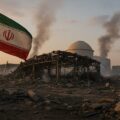
The U.S. Strikes Iran: Why It Matters and What It Means for Global Security
On the night of June 22, 2025, the global balance shifted. The United States launched direct strikes on three of Iran’s key nuclear sites — Fordow, Natanz, and Isfahan. President Donald Trump declared the mission a “stunning military success,” claiming the facilities were completely destroyed.
But beyond the headlines lies a stark new reality: a major war in the Middle East is no longer hypothetical. It has begun. And the consequences may affect not only the region, but global security, energy markets — and even Ukraine’s place in the world.
What did the U.S. actually do?
According to official reports, American forces carried out precision strikes against Iran’s underground nuclear facilities using one of the most powerful non-nuclear weapons ever deployed in combat: the GBU-57A/B Massive Ordnance Penetrator (MOP), known as the “bunker buster.”
Weighing over 13 tons, the MOP is designed to destroy heavily fortified underground structures. It can only be delivered by B-2 Spirit strategic bombers — and this was its first documented combat use.
In short: the U.S. hit Iran with the most advanced conventional bomb in its arsenal, against targets that were previously considered untouchable.
What did Trump say?
President Trump called the operation a “complete success,” aimed at eliminating the nuclear threat posed by what he described as the world’s “number one state sponsor of terrorism.” He praised Israeli cooperation and warned that more strikes could follow if Tehran refuses to enter peace talks.
This is classic Trump diplomacy: swift, unilateral, and focused on strength. But is there a strategy behind it — or is this simply a show of force?
Iran’s reaction: defiance, not surrender
Iran immediately condemned the strikes as a violation of international law, specifically the Treaty on the Non-Proliferation of Nuclear Weapons (NPT). Tehran’s Atomic Energy Organization stated: “We will never allow the development of our nuclear program to be halted.”
In effect, the attack has not weakened Iran’s resolve. It has likely bolstered domestic support for hardline positions. Iran has already responded with missile strikes against Israel — and while no full-scale war has been declared, active hostilities are already underway.
Israel: high alert and quiet concern
In response, Israel declared a state of emergency at 3:45 a.m. nationwide. All non-critical civilian activity was suspended, and the Israeli Defense Forces (IDF) instructed citizens to follow emergency guidance.
Despite public confidence, Israeli officials are clearly aware: it’s easier to strike fortified targets than to contain retaliation from a deeply entrenched, ideologically motivated adversary.
The IAEA: red flags everywhere
The International Atomic Energy Agency (IAEA) convened an emergency board meeting. Director General Rafael Grossi called the situation “urgent.” While no radiation leaks have been detected, the strikes represent a major breach of global nuclear safeguards.
The IAEA emphasized that no approval or consultation occurred before the strikes — a clear signal that established norms are breaking down.
What does this mean for the world?
The biggest danger lies in the precedent. When one nuclear-armed state strikes another’s nuclear infrastructure without UN authorization, the very structure of global security is at risk. If it’s acceptable today in the name of “counterterrorism,” who’s to say Russia, China, or others won’t invoke the same logic tomorrow?
This escalation also threatens global energy flows, investor confidence, regional stability — and the international legal framework that underpins all of it.
Why should Ukraine care?
Ukraine isn’t directly involved. But the ripple effects could be significant.
1. A shift in U.S. attention
A new war means new priorities. Even if Washington continues to support Kyiv, attention, resources, and media bandwidth will be stretched.
2. A weakened rules-based order
If the global legal system erodes further, it will be harder for Ukraine to assert its case in courts, at the UN, or in future negotiations.
3. A dangerous precedent
If bombing nuclear facilities without UN Security Council approval is tolerated, the same justification could be used elsewhere — even against Ukrainian infrastructure under the guise of “preventive security.”
A fragile calm, a looming storm
This was not just an airstrike. It was a strike against the principle of restraint. A message to the world that one of the most powerful nations is no longer bound by diplomatic procedure.
So far, things remain under control — barely. But any escalation from Iran, especially toward U.S. bases or Israeli cities, could trigger a large-scale war with far-reaching consequences.
For Ukraine, this moment is a warning. Not just about the East, but the West — where allies are also unpredictable players with their own priorities and timelines.














